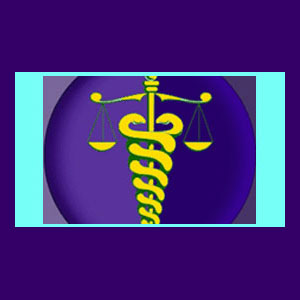
Allergic rhinitis, also called hay fever, is perhaps the most common of all respiratory allergies. The substance-sensitivity condition affects a sizeable percentage of the population and can range from mildly annoying to incredibly severe, depending on individual sensitivity. Hay fever is also implicated as one of the most prevalent psychosomatic pain syndromes. There is a huge amount of evidence pointing to the true source of allergic sensitivity as being part of the mindbody process. While the mind can contribute to allergic reactions, it can also luckily prevent them and actually end them.
This essay uses research evidence to support the theory that rhinitis is one of the many possible consequences of the psychosomatic process.
Allergic Rhinitis Causes
Hay fever is characterized by an unusual sensitivity to some pollens. However, other non-pollen irritating substances can bring about identical reactions in many people. Some of the other usual substances which enact symptoms may include animal dander, pet hair, certain fragrances, mold spores, chlorine gas and dust.
Patients who display sensitivity to these substances will usually demonstrate the usual allergic reaction, including a build-up of histamines; producing a runny nose, watery eyes, sneezing, coughing, choking and possible metabolic shock in extremely rare instances.
Rhinitis is usually a seasonable condition, acting up when plants release pollen in large quantities.
Types of Allergic Rhinitis Pollen
The main rhinitis irritants consist of wind pollinated plant spores that are sourced from the following flora species:
A wide range of grasses.
Ragweed, nettle and mugwort.
Birch, cedar, hazel, willow, poplar and olive trees.
Hay fever is obviously worse during times when the plants are releasing large amounts of pollen into the air. Furthermore, atmospheric conditions can escalate symptoms. Dry hot climates are worse than wet and cool climates. Rainfall will typically keep airborne pollen to a minimum. This is why so many patients with serious symptoms often relocate to a different geographical region to find relief from seasonal allergies.
Psychosomatic Allergies
As a psychologically induced pain syndrome, hay fever is able to be controlled without medical treatment in many patients. This controversial idea often brings up the question of why an allergic reaction occurs, if the cause is “all in the mind”. Well, as with many mindbody disorders, the mind is important to how the body deals with the added stress of suspected irritants. If the mind perceives a substance will be irritating to the body, then the patient is likely to suffer physical symptoms.
There are obviously very complicated interactions occurring between the mind and body to make these physical hypersensitivities possible. Conditioning plays a big role in all allergic reactions, since fear plays into how and when symptoms will be experienced in many patients. Some of the best research concerning hay fever as a psychosomatic syndrome clearly shows that patients under hypnotic suggestion will not suffer any negative effects from their known allergens.
Additionally, patients under hypnosis can be brought into full allergic reaction mode by exposing them to completely innocent substances, as long as they think these substances will produce an allergic reaction. This phenomenon defies logic if the mechanism for hay fever were indeed a purely physical concern.
Rhinitis Guidance
Dr. John Sarno talks much about using knowledge therapy to control hay fever and similar allergies. The good doctor himself has suffered from these syndromes and has successfully used his own advice to treat the symptoms.
I have corresponded with many patients whose hay fever disappeared along with their back pain. All they had to do was to equate the symptoms with TMS and they were able to be free from their allergies or at least enjoy a reduced effect from known allergens.
When compared to the symptomatic treatment using a wide range of drugs to battle simple allergic reactions, knowledge therapy is a nice holistic choice without risk or expense. This is precisely why it gets a nod of approval virtually every time for treating pollen-induced rhinitis.
Back Pain > Psychologically Induced Pain Syndromes > Allergic Rhinitis





